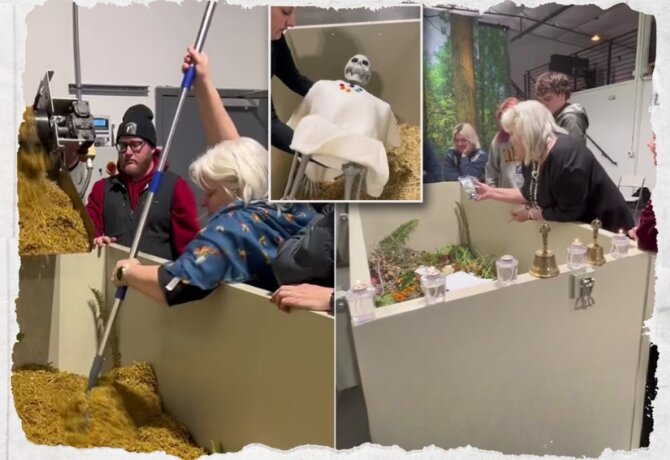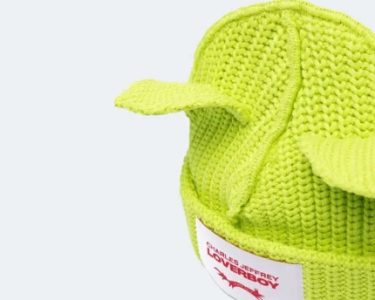When my son passed away unexpectedly, I was faced with the difficult task of planning his funeral. In the midst of my grief and sadness, I couldn’t help but think about the impact that traditional funeral practices have on our environment. That’s when I began to explore eco-friendly options for funerals and stumbled upon a unique way to honor my son’s life: by turning his body into compost. It may sound unconventional, but this experience has not only provided closure for me and my family, but it has also opened our eyes to new ways of approaching death that are more sustainable for our planet. Join me as I share my story and explore some other eco-friendly funeral options you may want to consider.
Why I chose eco-friendly options for my son’s funeral
Losing my son was one of the most devastating experiences of my life. As I began to plan his funeral, I realized that traditional funeral practices were not aligned with our family’s values. The thought of embalming his body and placing it in a casket that would eventually end up buried underground didn’t sit well with me.
I started doing some research about eco-friendly options for funerals and discovered a world of possibilities. From biodegradable caskets to natural burial grounds, there were so many ways to honor my son’s life while also minimizing the impact on our planet.
One option that particularly stood out to me was turning his body into compost. It sounded strange at first, but after learning more about the process and how it could turn him into something beautiful, I knew it was the right choice for us.
Choosing an eco-friendly funeral wasn’t just about reducing our carbon footprint, though. It was also a way for us to feel like we were giving back to nature and honoring our son’s love for the outdoors.
The process of turning my son’s body into compost
The process of turning my son’s body into compost was a new and unique experience for me. I had never heard of this option before, but as soon as I learned about it, I knew that it was the perfect choice for my son.
The first step in the process was to find a funeral home that offered this service. After some research, I found a local provider who specialized in eco-friendly options. They explained the entire process to me and made sure that all of my questions were answered.
Once we decided to move forward with composting, my son’s body was placed in a special container filled with wood chips, sawdust, and straw. Over time, bacteria began breaking down the materials along with his body.
After several months had passed, his remains had turned into nutrient-rich soil which could be used for gardening or other purposes. It gave me comfort knowing that he would continue to give back to the earth even after death.
While it may seem like an unconventional choice at first glance, turning my son’s body into compost felt like the right decision for our family given our commitment towards sustainability and environmentalism.
How this experience has changed my view of death
Experiencing the death of a loved one is never an easy process, but going through it while choosing eco-friendly options has changed my view of death entirely. Before this experience, I had always associated funerals with sadness and sorrow. However, being able to turn my son’s body into compost instead of traditional burial methods made me feel like we were giving back to nature in some way.
It also made me realize that we have the power to make choices about how we want our bodies treated after death. We don’t have to follow societal norms or traditions if they don’t align with our values and beliefs.
Moreover, this experience highlighted the importance of conversations around death and dying. It’s not something that should be avoided or ignored because it’s uncomfortable. By having these conversations beforehand, we can plan for end-of-life decisions and ensure that our wishes are carried out.
Choosing eco-friendly options for funerals has opened up new perspectives on life and death for me personally. It has taught me that there are alternative ways to approach death beyond just mourning and sadness – by honoring both life and nature simultaneously.
Some other eco-friendly funeral options
Alongside turning a body into compost, there are numerous other eco-friendly funeral options available. One popular choice is the use of biodegradable caskets and urns made from materials such as bamboo, willow, or recycled cardboard. These options offer a more sustainable alternative to traditional coffins that can take hundreds of years to decompose.
Another option is a green burial where the body is placed in a natural setting without embalming chemicals or concrete vaults. This allows for a more natural decomposition process and eliminates some of the environmental impacts associated with traditional burials.
For those who prefer cremation, there are also greener alternatives available. Water cremation, also known as aquamation or alkaline hydrolysis, uses water instead of fire to break down the body. This process consumes less energy than traditional cremation and produces fewer greenhouse gas emissions.
Consider donating your organs and tissues after death as an eco-friendly way to give back to others while reducing waste at the same time.
These eco-friendly funeral options offer individuals an opportunity to make conscious choices about how they want their final journey on earth to impact the environment around them.
Conclusion
Choosing eco-friendly options for funerals can have a positive impact on both the environment and our own grieving process. My experience of turning my son’s body into compost was not only an environmentally conscious decision but also allowed me to feel a sense of peace in knowing that he was returning back to nature.
There are many other eco-friendly options available for those who want to reduce their carbon footprint when it comes to funeral arrangements. These include natural burials, using biodegradable caskets or urns, and even donating your body for scientific research.
While death is never easy to deal with, choosing eco-friendly options can bring comfort in knowing that we are doing our part in leaving behind a better world for future generations. Let us all make conscious choices when it comes to end-of-life arrangements so that we may honor our loved ones while also respecting the earth.




